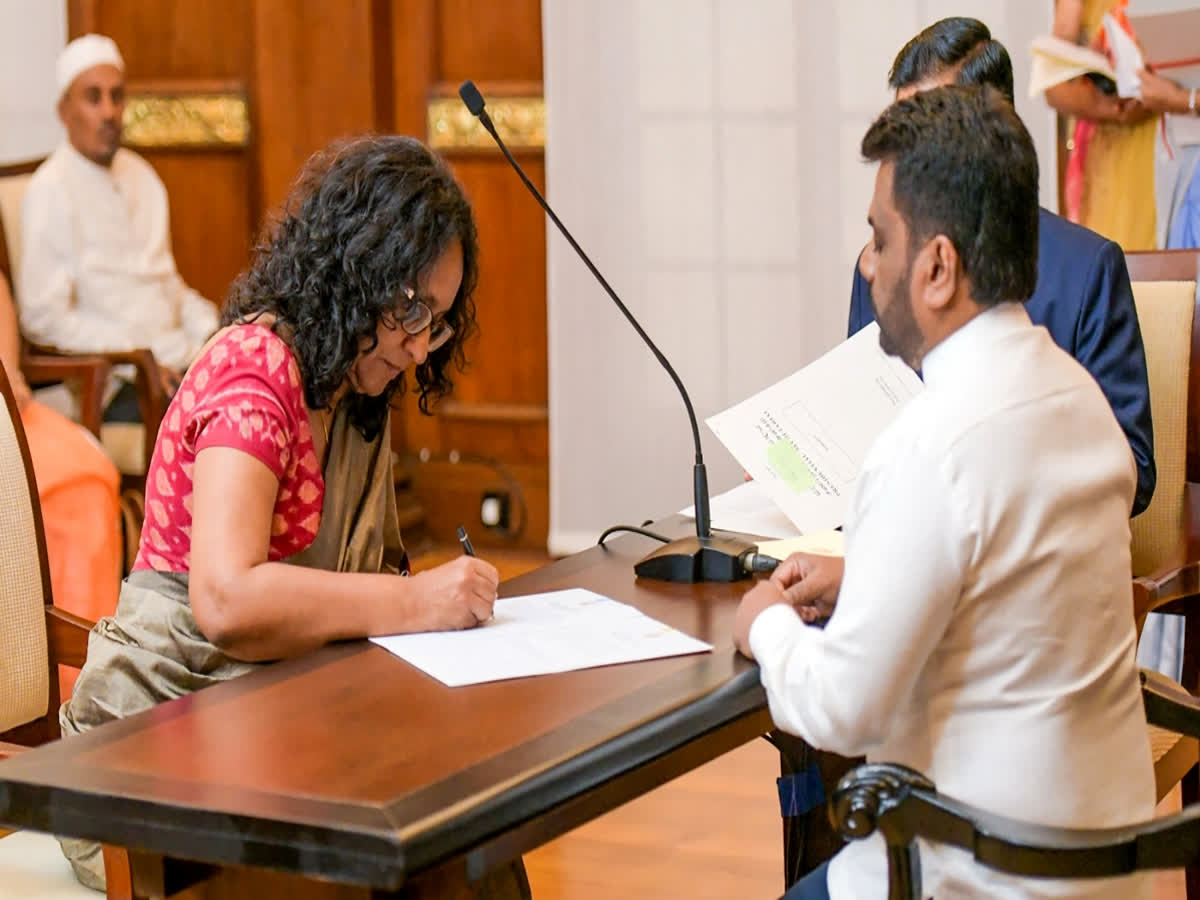"Dream, Dream, Dream! Conduct these dreams into thoughts, and then transform them into action."
- Dr. A. P. J. Abdul Kalam
"Dream, Dream, Dream! Conduct these dreams into thoughts, and then transform them into action."
- Dr. A. P. J. Abdul Kalam
1 Oct 2024
Sri Lanka witnessed a historic moment on September 24, when President Anura Kumar Dissanayake appointed Dr. Harini Amarasuriya as the country’s new Prime Minister. This appointment holds great significance as it makes Amarasuriya the first woman to hold this office in 24 years, following the footsteps of Sirimavo Bandaranaike, the world's first female head of government. With this, Amarasuriya also becomes only the third woman in Sri Lankan history to serve as Prime Minister.
Beyond this milestone, Dr. Amarasuriya's appointment carries additional weight as she will concurrently serve as the Minister of Justice, Education, Labour, Industries, Science & Technology, Health, and Investments. Her rise to this powerful position has generated considerable attention, not only because of her gender but also because of her steadfast commitment to inclusivity, equality, and the advancement of women in politics.
Dr. Harini Amarasuriya’s journey to the top of Sri Lankan politics is as remarkable as it is unconventional. Born in March 1970 in Galle, a coastal town in southwestern Sri Lanka, she grew up as the youngest of three children. Her father, a tea estate planter, saw his livelihood transformed when the estate was nationalized by the government. This shift prompted the family to move to Colombo, where Amarasuriya attended Bishop’s College, a prestigious Anglican girls' school. It was there that she began to understand the social disparities within her country.
Her academic career took her across the globe. After being forced to leave Sri Lanka due to the violent uprisings of 1988-89, she completed her undergraduate studies in Sociology at Hindu College, Delhi University. This experience marked the beginning of her deep engagement with social justice, particularly for marginalized communities. Further studies in Applied Anthropology at Macquarie University, Australia, and a doctorate in Social Anthropology from the University of Edinburgh equipped her with a comprehensive understanding of how social structures impact people’s lives.
Amarasuriya’s early professional experiences were equally transformative. Her first job as a social health officer in a community mental health center, working with institutionalized women, left an indelible mark on her worldview. As she recounted in a 2020 interview with *Women for Politics*, "That experience changed the way I saw the world and opened my eyes to what was really going on in places that are not always visible to us." This firsthand exposure to the struggles of the vulnerable further fueled her drive to pursue systemic change.
Before fully transitioning into politics in 2021, Dr. Amarasuriya led the Humanities and Social Sciences department at the Open University of Sri Lanka. Her academic work often intersected with her activism, particularly focusing on the inequalities faced by women, the working class, and ethnic minorities.
However, the 2011 worker protests marked a turning point in her political activism. As a member of the Federation of University Teachers Association, she threw her support behind the protesting workers, a move that resonated with her deep-rooted sense of justice. "I joined the union on my very first day at the university and went for my first protest march – without a job offer letter in hand," she recalled.
These experiences led her to the Janatha Vimukthi Peramuna (JVP), a Marxist party historically associated with militant resistance, but now shifting towards more mainstream politics under the leadership of President Dissanayake.

Dr. Amarasuriya’s appointment as Prime Minister is significant because of what she stands for. She has consistently advocated for a greater role for women in politics, describing Sri Lanka’s political culture as "largely dynastic, toxic, masculine, violent, and exclusive." For her, the barriers that keep women from participating in politics run deep, with the prevailing notion that politics is not a respectable profession being a key deterrent.
Her feminist ideology is not limited to gender parity. It extends to addressing the intersecting inequalities of class and ethnicity that pervade Sri Lankan society. Amarasuriya has often highlighted the underrepresentation of the Tamil community in political spaces and called for more inclusive policies that involve women in reconciliation efforts. She is particularly concerned with how the civil war impacted Tamil women, who bore the brunt of the violence and were often sidelined in peace-building efforts.
Amarasuriya’s life experiences have shaped her commitment to addressing ethnic tensions. Having grown up with Tamil neighbors who had to drop out of school due to political unrest, she witnessed the systemic inequalities they faced. In a 2020 article for *The Wire*, she wrote, "It seems as if nurturing constant tension with an ethnic/religious ‘other’ is essential for doing politics in Sri Lanka."
Her leadership could bring about more comprehensive efforts toward national reconciliation. Amarasuriya has long championed the inclusion of Tamil women in policy-making processes, recognizing the unique challenges they face. This sensitivity to minority concerns, coupled with her feminist stance, offers hope for a more equitable and just political landscape in Sri Lanka.
Looking ahead, as the third woman to hold the office of Prime Minister in Sri Lanka, Harini Amarasuriya’s appointment represents a potential turning point in the country’s political culture. Her leadership could usher in a new era of inclusivity, both for women and for ethnic minorities who have long been marginalized. While challenges undoubtedly lie ahead, her track record as an academic, activist, and feminist suggests she is well-equipped to navigate them.
For Sri Lanka, her leadership may just be the catalyst for a more progressive and inclusive future.